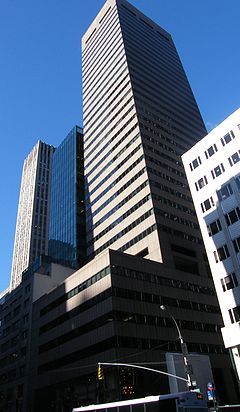August 09, 2019

A US appeals court has unanimously thrown out a lower court decision allowing the US government to seize the Iranian-owned building at 650 Fifth Avenue in Manhattan.
The appeals court cited several errors by the trial judge.
The building is thought to be worth about $1 billion now. It was to be sold and the proceeds distributed among American “victims of terrorism” who have won suits against Iran for supporting terrorism.
The trial was over the question of whether the 36-story building was effectively controlled by Iran and thus could be seized.
Jurors had found in June 2017 that the nonprofit Alavi Foundation, which had a 60 percent stake in the partnership that owned the building, violated US sanctions imposed against Iran in 1995 because it knew that the 40 percent owner, Assa Corp., was a front for an Iranian state-owned lender, Bank Melli.
But in a 3-0 decision August 9, Circuit Judge Richard Wesley faulted trial judge Katherine Forrest, who is now in private practice, for “a troubling pattern of errors on relatively straightforward issues.”
Wesley said these included admitting videotapes of former Alavi board members repeatedly invoking their constitutional right against self-incrimination, and refusing to let Alavi gather evidence to show the government sued too late.
“If this case returns to trial, a properly informed jury may or may not find for the government—a topic on which we have no opinion,” Wesley wrote. “But getting to any outcome requires a fair and procedurally adequate process, something that has been lacking in this case. There are no shortcuts in the rule of law.”
The US Justice Department could appeal to the Supreme Court or decide to start the trial all over again. It could also just drop the case, but that is unlikely given that the ruling was essentially against the judge and not on the merits of the case.
Mohammad Reza Shah Pahlavi founded the Pahlavi Foundation in 1973. It was nationalized after the revolution and its named changed to Alavi Foundation. Its mission in the United States includes the promotion of Persian culture, including Islamic studies.